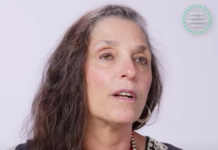Mental Health Industry Should Embrace Choices Beyond Drugs
In this video for NowThis, Yana Jacobs critiques the mental health industry standard of prescribing drugs as the first-line treatment for "mental illness." She emphasizes...
81% Recovery from Psychotic Breaks? Psychiatrist Reflects on Open Dialogue Method
Psychiatrist Tom Stockman has been posting a series of articles on his blog Mandala, reflecting on the Open Dialogue method for intervening in psychiatric...
Family Oriented, Home-Based Treatment Best for Youth with Symptoms of Psychosis
A pathbreaking new study out of Finland suggests that early intervention programs for youth experiencing psychotic-like symptoms may see the greatest improvement when treatment works within the home rather than in a hospital setting. The research, to be published in next month’s issue of Psychiatry Research, found greater improvement in functioning, depression, and hopelessness among teens in a new need-adapted Family and Community oriented Integrative Treatment Model (FCTM) program.
The Fictions and Futures of Transformative Justice
In this interview for The New Inquiry, two co-editors and three writers of Octavia's Brood: Science Fiction Stories From Social Justice Movements discuss prison abolition and...
Depression Discrimination More Severe in High Income Countries
According to a study published in this month’s British Journal of Psychiatry, people diagnosed with depression in high-income countries are more likely to limit...
Call For Abstracts: Philosophical Perspectives on Critical Psychiatry
The Association for Advancement in Philosophy and Psychiatry is issuing a call for abstracts, with a particular interest in submissions from service users. The...
“Why We Need to Abandon the Disease-Model of Mental Health Care”
In a guest blog for the Scientific American, Peter Kinderman takes on the “harmful myth” that our more distressing emotions can best be understood as symptoms of physical illnesses. “Our present approach to helping vulnerable people in acute emotional distress is severely hampered by old-fashioned, inhumane and fundamentally unscientific ideas about the nature and origins of mental health problems.”
REFOCUS Psychosis Recovery Intervention Ready for Trials
A new pro-recovery manualized intervention – called the REFOCUS intervention – has been developed and will now be evaluated in a multisite randomized control trials. The strengths-based intervention, which focuses on promoting relationships, is outlined in the latest issue of the British Journal of Psychiatry.
“What Are Delusions – And How Best Can We Treat Them?”
For The Conversation, psychologist John Done, from the University of Hertfordshire, explains his approach to discussing delusions with his patients. Done recommends more qualitative...
“Hearing Voices: The People Who Say Talking Back is the Only Answer”
Journalist Emma Reynolds profiles Amanda Waegeli, Ron Coleman, Nathan Grixli and Lyn Mahboub about their experiences coming to the Hearing Voices Network (HVN). HVN was established 10 years ago in Australia and provided a support group that encouraged people to listen to their voices rather than trying to block them out. The group now operates in 25 countries.
“Open Dialogue: Finland’s Alternative Approach to Mental Illness”
"Almost 30 years ago a group of clinicians in Finland decided to treat psychosis differently. Their approach, known as Open Dialogue, has impressive recovery...
“Loneliness May Warp Our Genes, And Our Immune Systems”
NPR reports how loneliness can change our bodies and affect our physical and mental health. "There are things we can do to get out of a depressed or lonely state, but they're not easy," they report. "Part of the reason is because these negative psychological states develop some kind of molecular momentum."
“Veterans Let Slip the Masks of War: Can This Art Therapy Ease PTSD?”
“Service members suffering from PTSD often feel like they’re wearing a mask,” Samantha Allen writes in Invisible Wounds. Melissa Walker, an art therapist, asks them to make one. “The results are stirring. One mask, striped in red and black with hollow chrome-colored eyes, is wrapped in razor wire with a lock where its mouth should be.”
“How We Label People with ‘Mental Illness’ Influences Tolerance”
Honor Whiteman reports on a study in The Journal of Counseling & Development, which found that people may be less tolerant of an individual...
“Does Psychoanalysis Have a Role in Modern Mental Health Care?”
Lynne Malcolm, for ABC’s All In the Mind program, interviews three psychoanalysts about how their field remains “relevant and useful in the contemporary therapeutic...
Saved by the Book: Can Reading be More Effective than Medication or Therapy?
“Studies show that self-help books can resolve readers’ depressed moods, change ingrained thought patterns, and instill a renewed zest for life – as long as the advice within is scientifically sound,” Elizabeth Svoboda writes for Aeon. “The literature we choose to guide us should supply proven advice we can trust. But it should also, as Franz Kafka wrote, be ‘the axe for the frozen sea within us’, bludgeoning us in ways that awaken us to the extraordinary.”
International Psychologists To Host Public Webinar on Rational Emotive Behavior Therapy
The Society for International Psychology, Division 52 of the American Psychological Association, will host a webinar entitled “The Humanistic, Vigorous and Universal Approach of Rational Emotive Behavior Therapy.”
“Life, Animated: A Remarkable Story of How a Family Reached Their Autistic Son Through...
A new documentary “Life, Animated,” which premiered at the Sundance Film Festival, tells the story of a man with autism who learned to interact...
“The Surprising Reason Psychotherapy Works”
For Psychology Today, David Elkins writes that “psychotherapy's power to heal lies mainly in its human and relational aspects,” rather than any specific techniques...
First-ever Peer-supported Open Dialogue Conference
-On March 11, 2015, the NHS Foundation and three other Trusts are hosting a free conference to "take stock" after one year of Peer-supported Open Dialogue.
“Can Madness Save the World?”
Writing for CounterPunch, Paris Williams writes that when an individual is experiencing what has been termed “psychosis,” it is important to recognize that this may also be the manifestation of a breakdown in their larger social groups, the family, society, and even the species.
“Programs Expand Schizophrenic Patients’ Role in Their Own Care”
Benedict Carey at the New York Times covers the push for new programs that emphasize supportive services, therapy, school and work assistance, and family education, rather than simply drug treatment.
Psychologists To Livestream Summit on Global Interdisciplinary Health Care
The American Psychological Association is hosting a two and half day interdisciplinary summit on November 3rd through 5th entitled Global Approaches to Integrated Care: Translating Science And Best Practices Into Patient-Centered Health Care Delivery. The summit features presentations and discussions on social determinants of health, demographics, culture and health disparities, and patients’ perspectives, among others. It can be livestreamed here.
“Helping Others Dampens the Effects of Everyday Stress”
"The holiday season can be a very stressful time, so think about giving directions, asking someone if they need help, or holding that elevator...
“Toward a Social Justice Therapy: Let’s Keep Talking”
Can psychotherapy help dismantle oppression? “Social justice focused, analytic therapy- the kind of therapy I strive to do- is one that can support the...











